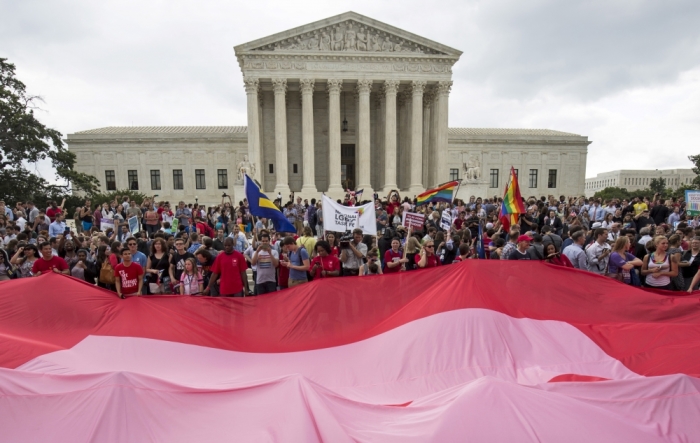Texas Pastor Explains He Didn't Mean to Set Himself on Fire Over Supreme Court's Same-Sex Marriage Decision

Rick Scarborough, a former pastor from Texas, clarified Friday he did not mean to say he would self-immolate if the Supreme Court legalized gay marriage, but was referring to the faith and furnace incident recorded in the Book of Daniel in the Old Testament.
"I made that comment to paraphrase a spiritual song, Shadrach, Meshach and Abednego in which the three were given a choice—to bow to the image of Nebucahdnezzar or burn in a furnace," Scarborough, a Christian conservative activist, told KFYO News.
"'We will burn' means that we will accept any sanction from the government for resisting today's Supreme Court decision. We do not support any violence or physical harm," he said.
The activist had remarked earlier this week, "We are not going to bow. We are not going to bend, and if necessary we will burn," according to The Independent. He said this while on air with the EW Jackson's National Emergency Coalition podcast.
"The preachers need to get out front, the leaders need to get out front, out front of these ordinary citizens and say, 'Shoot me first!'" Scarborough said during the podcast. "We now have a race of humans that don't want to acknowledge that there's a God."
The Supreme Court ruled in a majority decision Friday that the constitution guarantees the right to gay marriage.
"It would misunderstand these men and women to say they disrespect the idea of marriage," wrote Justice Anthony M. Kennedy for the majority. "Their plea is that they do respect it, respect it so deeply that they seek to find its fulfillment for themselves. Their hope is not to be condemned to live in loneliness, excluded from one of civilization's oldest institutions. They ask for equal dignity in the eyes of the law. The Constitution grants them that right."
The ruling means the 14 states where same-sex marriage is not legal will have to lift the ban. These states are Alabama, Arkansas, Georgia, Kentucky, Louisiana, Michigan, Mississippi, Missouri, Nebraska, North Dakota, Ohio, South Dakota, Tennessee and Texas.
The White House celebrated the ruling by projecting rainbow-colored lights onto its exterior.
However, dissenting justices have warned that the Supreme Court decision will infringe upon the religious freedoms of those holding traditional views about marriage.
While religious accommodations have been written into state laws redefining marriage, the Supreme Court did not, and could not, do that in claiming that gay marriage is a fundamental right; inevitably, this will lead to religious freedom conflicts, Chief Justice John Roberts wrote in his dissenting opinion.
"Unfortunately, people of faith can take no comfort in the treatment they receive from the majority today," he wrote.





























